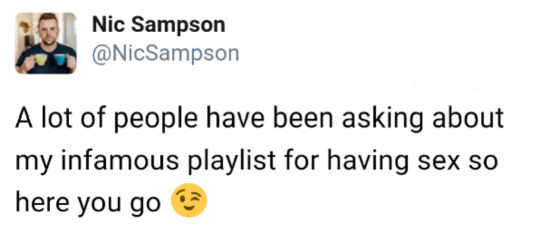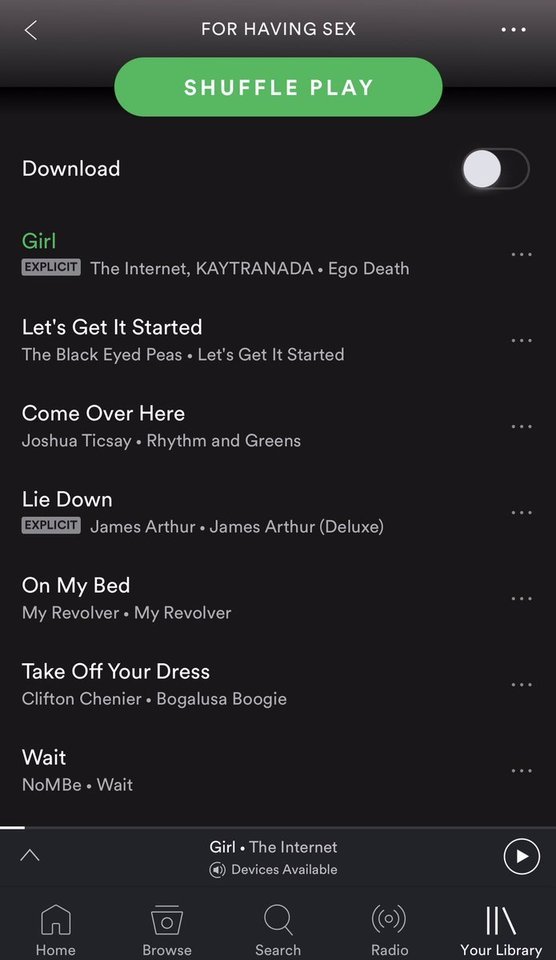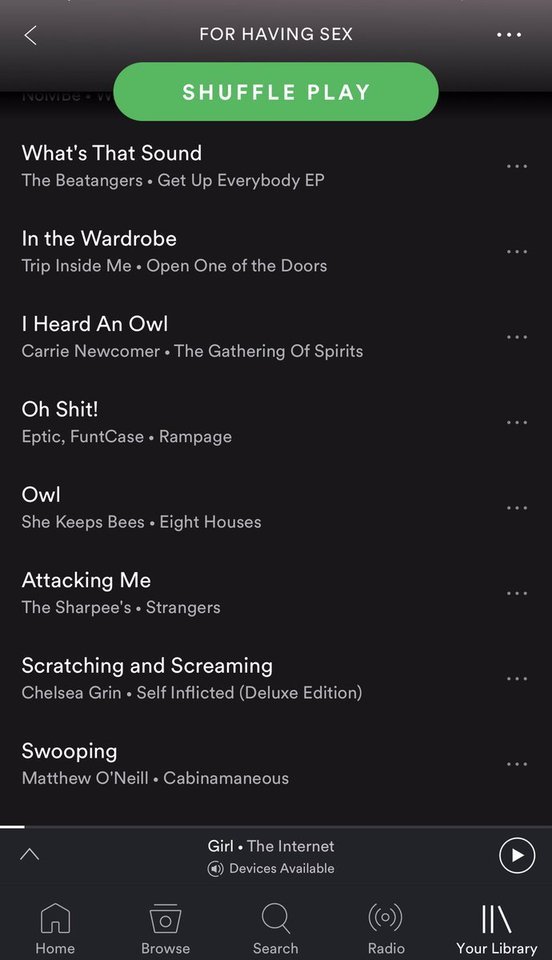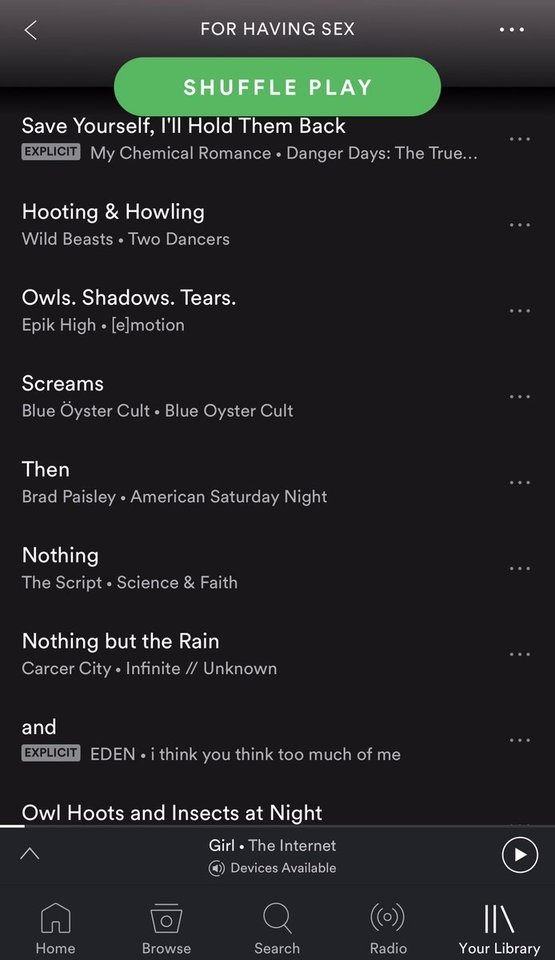Hello! I'm a poet and editor based in London, and open to new commissions, projects and collaborations. I co-run award-winning press Sidekick Books with Jon Stone.
Don't wanna be here? Send us removal request.
Video
youtube
JT Welsch and I, owning and being robots at York Waterstones, as part of the NxNE poetry readings series organised by Harry Man.
3 notes
·
View notes
Text
Never Never Never Come Back is, um, back! In paperback!
The stunning Salt Publishing have just announced the return of their Salt Modern Poets list! And to mark the occasion, they’re releasing paperback versions of my first collection, Never Never Never Come Back, and Jon Stone’s exceptional debut School of Forgery! These titles have been sold out, and it’s thrilling to see them back in print!
Thank you to Salt for their love and support, and for those gorgeous covers - we can’t wait to see what this fellow indie press does next!
Follow Salt on Twitter @saltpublishing and ogle their beautiful designs on Instagram.

1 note
·
View note
Text
Writing while Deviant for The Rumpus!

As if interspecies paranormal relationships weren’t enough, I’ve written for The Rumpus on the parallel insecurities in writing and kink. “Playing A Part: Imposter Syndrome in Kink and Writing” is an exploration of the pressures we experience and turn in on ourselves, even in the case of our own desires..
If you haven’t checked out the (K)ink: Writing While Deviant series, do! Through reading each person’s story, I discovered so many interesting life stories around kink and art. My favourite so far is “Dropping Fictions and Gaining Visibility”, Brian Kornell’s despatch from the gay gainer scene.
(K)ink: Writing While Deviant is curated by Arielle Greenberg, an incredible writer and editor, and the coiner of the term ‘Gurlesque’.
2 notes
·
View notes
Text
Alchemy: Why poetry publishers need to get it together
Poetry publishing can be fun, rewarding and inspiring, but it can also prove tough, isolating and tiring. With that in mind, I’ve written this short piece for the wonderful BookMachine about the need for poetry presses to collaborate.

It contains such gems as:
“Collaboration is about more than just scoring retweets, high-fives and affiliate sales. It’s about access to new countries and languages, new spaces, new voices, new ways of looking at poetry.“
So there!
youtube
1 note
·
View note
Text
Poetic Interviews: Line breaks of questioning
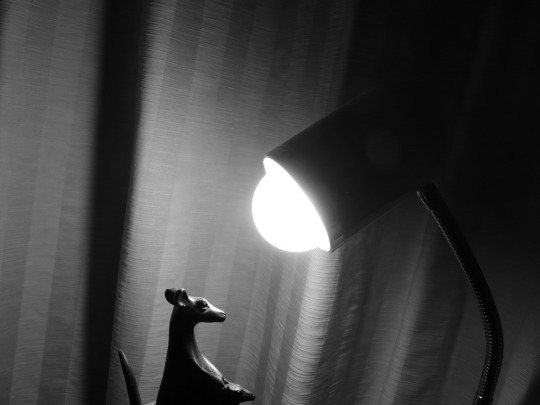
Poetic Interviews comes from a brilliantly simple idea: why not interview poets using poetry?
Aaron Kent, founder of Poetic Interviews, corners poets, asks them questions in verse and gets poetic responses back from the writers. The results are playful, revealing and spontaneous, and show the artistic side of both the interviewer and writer. Speaking from the writer/interviewee seat, even though Kent does not demand a form, I felt the constraints of the format were just as helpful as if I’d had a form to work to.
Poetic Interviews has spoken to a huge range of poets, from Theophilus Kwek to Jane Commane, and was shortlisted for a 2017 Saboteur Award. It’s an invigorating format and one that guarantees that the writer does not fall back on stock answers.
I’m in the middle of my grilling right now (poets answer between 1 and 5 questions). You can find Aaron’s questions and my responses here (Question One) and here (Question Two).
Don’t forget to follow Poetic Interviews for future inquisitions!
0 notes
Link
Playing a Part: Imposter Syndrome in Literary and Kink Communities

I wrote about kink, poetry and the insecurities that go with both for The Rumpus!
1 note
·
View note
Video
tumblr
Love Carcass, an interspecies erotic memoir, unfolding now at lovecarcass.tumblr.com
1 note
·
View note
Text
Something scaly this way comes!
I’m all hot and bothered to announce the launch of

Based on the card game The Beast, made by Naked Female Giant, Love Carcass is an erotish diary of one woman’s increasingly uncomfortable relationship with a “squamous copper monster” called Carcass.
I’ll be posting updates on Love Carcass for the next two months. Follow the tumblr for updates, or follow me on Twitter @KoftheTriffids.
Contains: explicit content, ambiguous appendages, crisp packet art.
0 notes
Text
Poetry News gets vocal
I’m in the latest edition of Poetry News, published by the Poetry Society, talking about the links between voiceover and poetry. Thanks to Mike Sims for letting me step into the booth!

1 note
·
View note
Photo

“New North” (Collage, 2016)
2 notes
·
View notes
Text
New Year’s fear and Quantum Hotness
There’s a brilliant vignette in Adam Warren’s graphic novel Empowered in which the insecure hero’s boyfriend Thugboy lets us in on his theory of quantum hotness:

It’s a prime cut of comic book truth that’s funny, witty and recognisable.
Every New Year, I don’t so much get quantum hotness as quantum competence. Whether I feel like a success or not depends on what day of the week you enquire. It’s so freaking fragile. Success is the make-believe bubble you’re told to hold in drama class warm-ups. More often, it’s an unwrapped burrito spilling all over the shop.
31 December [insert year here]: I’m fired up with my list of “Go for it! You can do anything! Success quest ultrayear!” resolutions. I’m excited, confident and ready to roll. These resolutions weigh less for me on the healthy side (I’m a realist) and more on the art side. Put together this manuscript, resurrect this beloved project and so on.
Then suddenly New Year is over and it’s 5th January. Work, admin and household tasks elbow their way onto the agenda, tiredness creeps in and suddenly missing one item off the daily to-do list means you’ve failed the entire day.
From that point on, it’s a steady ledge-shuffle to avoid falling into Black Dog Mire. The whisper in your ear that “You never finish anything, do you?” If I’m unlucky, the dog’s mates Imposter Syndrome and Status Anxiety will bring a cheap bottle between them and swing in through the side door.
Of course I’m not alone in this. Many people don’t make resolutions at all so they avoid the feeling of failure. For me, that’s even worse. I need to know that if I failed, I failed while attempting something ambitious. If I have attempted nothing, other failures manifest to take the places of the resolutions.
If you too are feeling this seasonal hopelessness and guilt, I’m not going to send you some motivational bullshit (my feelings on the matter being clear). Instead, I send you a tip of the hat for making those resolutions, trying, failing, recalibrating and carrying on. You’re doing ok.
3 notes
·
View notes
Text
Play-poems, bardbots and a call for visual verse!
Advent is upon us, and we’ve been celebrating over at Sidekick Books! Pop across and have a nosy!
Every day we’ve opened a new window of poetry mishmashery, featuring:
i) Hybardrid Twitterbots, mixing famous poets with other poets and other texts to form monstrous new superbards! We’ve created @SunsetPlaytime, featuring Frank O’Hara and Paul Celan, @PearlvQueen, mixing HRH with Victorian porn, Percianne Shellmoore (we’ll let you guess that one), the nonsensical @edwhirllearchester, @Anime Carson, in which Anne Carson adopts anime battle talk, and @Gertrudes_Gifts, which sees Gertrude Stein hosting a QVC Homewares segment.

ii) Playable interactive poems, including Meat & Mustard, two hidden word poems by Jon Stone, Shag or Cormorant?, in which you must play to find out which bird you will become, Mothra, a concrete poem ode to a beloved Godzilla adversary, and In Search of Lost Species, in which the reader seeks the creatures from Harry Man and Sophie Gainsley’s collection, Finders Keepers - which one will you uncover?

iii) All manner of other poetry snafflings, including an alternative Queen’s Speech collaged from the quotes of RuPaul Charles, our fictional boss’s Naughty & Nice lists, and our exciting Call for Submissions for future books Aquanauts and Bad Kid Catullus!

We’re halfway through and having a bauble, so do join us for the rest of the season!
#advent calendar#sidekick books#poetry#submissions#concrete poetry#vispo#twitterbots#interactive poems
0 notes
Text
Poets Are So Excited - but does anybody care?
You can’t sit on your laurels as a writer, they say. Get out there on social media, they say. Plug your work. Brag your achievements. Promote promote promote.
And they’re right. Sort of. Poetry doesn’t have many reliable media outlets outside the internet, and publishers have limited resources with which to market books. Artists of all stripes need to be active online, not only because they need to stay abreast of the latest news and possibilities for their artform, but also to get out there and ensure people know their work exists.
But most people aren’t very good at it. So for every Neil Gaiman, starting competitions, sparking conversations, collaborating here, there and everywhere, you’ll get writers hammering Twitter over the head with sales spam, shedding followers at every turn.
Obviously, say we, that’s wrong. First rule of social media etiquette is that you only share things that are of interest to others beside yourself. That should do the trick, right?
Problem is that what’s interesting to you may not be to the wider world. And when it comes to poetry, we need to be thinking about the reader at every stage.
I’ve noticed among poets in particular a certain recurring phrase:
“So excited to be appearing in X”
“So excited to have been shortlisted for Y”
“So excited that my book will be published by Z”

Hands up here. I’m hardly immune to this. My very last blog post began with “Exciting stuff!”, I have frequently used the SE intro, and I am judging myself accordingly. You might say this post is a personal exorcism as much as it is a rant.
What’s the problem here exactly?
If we’re that excited about everything related to our poetry careers we’re going to need seatbelts on our swivel chairs just to get a first collection out. So my first problem with this phrase is that I don’t believe the user is always “so excited”. Sometimes it really does reek of perfunctory tweeting, perhaps because you’ve been asked to promote the event or magazine in question. So it becomes a fallback phrase.
How did this phrase become so prominent among poets? Poets, in my limited anecdotal dataset, tend to be uncomfortable sharing their triumphs. In contrast, more retiring visual artists can simple post their winning work online and allow it to speak for them. Pictures speak quickly, broadly and loudly. Not everyone will read through a poem.
So poets come up with a phrase that is both celebratory and Jenny-from-the-block modest (as in, “I’m totally still small enough to get excited about this wow you guys”) Or else, blue-tit-like, one poet does and we all learn from them. This allows us to brag it up under a mantle of modesty. It’s permission from us to ourselves to say we’ve done something and we want validation from the wider world.
My problem with “So excited” is that it represents a paucity of creative ways to talk about our artistic praxis, coupled with a Miranda-ish “Such fun!” tone that either grates or fails to grab. To go back to the old etiquette adage, why should anyone else care that you’re excited? Where’s the excitement for them? Especially in poetry, where paid roles, prizes, fellowships and such are extremely few and far between, could this not be insensitive?
Certainly you’ll get some Likes, some congratulations, some yays, but I know I add many of these almost from muscle memory. It’s not that I’m not happy for my friends, but there’s a disconnect there; I feel compelled by manners or habit to express this via the quick click of social media tools, which bypass genuine emotion and discussion in favour of polite box-ticking. The most thought I give to it a lot of the time is deciding which emoji to use for my reaction.
I suppose my point here is that all of this “I-did-this”/”Yay-you-did-that” back-and-forthing takes up time and energy that we could be using to make and discuss new, unusual, challenging poetry in fresh, unexpected ways. We could be mulling over methods of opening up the artform, instead of buzzing around the same old bottle.
Fine. What’s your genius solution then?
I don’t have one. But I have a couple of ideas for things to consider before hitting ‘Share’. (And hopefully I can break my bad habits and take my own advice on this.)
1. Think like a journalist before sharing on social media. What’s the angle here? Where’s the story? If you’re in a magazine or event, who else is in the magazine or event? Can you tag them? Is it a special issue? Ask yourself why people should care, because in poetry, nobody has a hysterical fanclub; nobody is throwing their knickers at you and buying every format of your latest poem. If you really, truly can’t find an angle outside yourself, at least make it funny, entertaining or in some way emotionally affecting for your readers. That’s reason in itself.
2. Do you actually need to share this thing that at all? Edit your sharing like you edit your poetry. Yes, it happened. It’s a thing. Mazel tov! Do you need to share it? Would it light someone else’s fire? Do you have something new to bring to the table in relation to it? If yes, go for it. If no, either accompany it with a rapier-witted comment or consider putting down the mouse and going for a walk.
youtube
3 notes
·
View notes
Link
Exciting stuff! Poetry Spotlight interviewed me about magazine editing, animals in cinema and Sidekick Books. Features the poem 'The Old Food Taster and the Stegosaurus'.
1 note
·
View note
Text
What a piece of work: poetry and technophobia
About a month ago, a contact on LinkedIn posted a link to a TED talk by writer Oscar Schwartz, titled “Can a computer write poetry?” Schwartz is one of the co-creators of the site Bot or Not, where users are shown poetry before being asked to guess whether it was written by a human or a bot.
Some respondents on LinkedIn were open to the idea posed by the talk’s title. Some were even excited by it.

While some flatly refused to accept it was possible to create valid poetry in this way, for a variety of metaphysical, emotional or philosophical reasons.

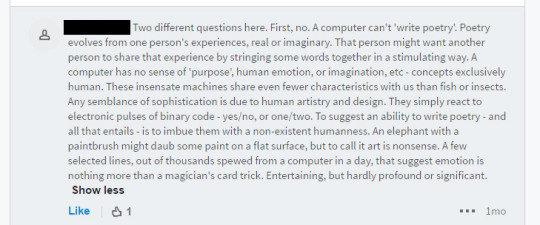
Indeed, in the third response, the idea itself seems to provoke an emotionally charged response. This is frustrating. It’s kneejerk, assumes a narrowcast definition of poetry and seems to rule out the opportunities and potential for the marriage of programming and poetry.
The overall question explored by Schwartz’s TED talk (and PhD thesis) concerned the difference between poetry generated by humans and poetry generated by algorithms. In a live Turing test for poetry, Schwartz showed the audience several excerpts, asking them to guess which was human-authored and which came from a computer.
While most respondents guessed ‘human’ for William Blake, they cried replicant on more avant-garde poems by Frank O’Hara and Gertrude Stein. O’Hara’s fast-paced mishmash of everyday sights and Stein’s shifting repetition do give the impression of data being drawn and processed at speed. It’s that spontaneity and play that I particularly enjoy.
But is it play when a computer emulates it? Can a computer legitimately play, or is everything a response to a pre-programmed set of instructions? Does this matter?
More to the point, what is so sacred about poetry above other media that it is ringfenced as a cache of human “mood, passion and personality”? We have no trouble with bots creating copy (@MarkovChocolates) or play-testing our video games. Is this rejection of non-human poetry, as a friend suggested to me, a hangover from post-Enlightenment anxiety over art being subsumed by science?
I asked the same friend what he thought the respondents arguing for “heartfelt, gut-wrenching emotions” in poetry thought a poet looked like.
“Thin, on a hill somewhere, flowy shirt. Probably white.”
Likewise, if we asked non-specialists what they thought a robot looked like, chances are they would describe the metal humanoid of countless sci-fi epics.
The Japanese robotics expert Masahiro Mori has little interest in such beings. He eschews the race to create a passable artificial human as boring. In his 1981 book The Buddha in the Robot, he finds the seeds of a soul in all automata:
“I believe robots have the buddha-nature within them – that is, the potential for attaining buddhahood.”
Mori, responsible for the theory of the uncanny valley, has found himself able to apply his very human religious faith to the machines he works with. After all, something of the human is put into every line of code that guides them. His words bring to mind the Japanese folklore around tsukumogami, household objects that, upon completing 100 years of servitude, become animate and self-aware.
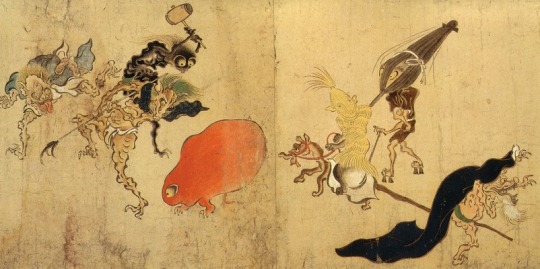
There is a real fear, echoed by scientists like Stephen Hawking, that conscious artificial intelligence will lead to robots creating robots and humans being superceded. Perhaps that is the real issue for the commenters. A fear of being replaced. There are numerous articles on whether a robot could put you out of your job as automation expands, and one of the comforts for garret-dwelling writers and artists is that according to such articles, their jobs seem low on the risk list. You can’t fake the feels, right? But while we have not yet managed to synthesise emotion, we have no idea how close such advances might be.
Or perhaps it is more a ‘Death of the Author’ issue, and unease at leaving a poem open to interaction and play by others (see Microsoft’s recent PR car crash with their chatbot @Tayandyou, thanks to the imps of Twitter). If we let our work out there, it might get corrupted. If we want our work out there, that’s a risk we have to take. One (hyphenated) word: Fan-fiction.
We should not approach computer-made art with such fear and hostility. Science fiction has a lot to answer for in terms of rogue robots setting upon humans and nightmarish images of man and machine being forcibly melded. But this same anxiety has played out in various guises throughout history, substituting robots for any ‘other’ present among a majority. What if it was just our ideas that joined together? What if the computer was as much a collaborator and contributor as the human?
3D artist Matthew Plummer-Fernandez goes even further. His sculptures are created through coding, so that the final product is almost an afterthought, printed out for exhibitions. In an interview I conducted with him a few years back for Maker World magazine, he said
“I actually try and engineer out the human as much as possible. I find so much media art really human-centric. But I find more fascinating computer systems that have this behind-the-scenes air, constantly doing things without any human interaction, sort of left to their own devices.”
In freaking out at the prospect of a robot poet, poetry lovers are forgetting a few key things:
i) Poetry cannot exist in a vacuum. Poetry needs to broaden its audience. It needs to speak with other genres, media and audiences in order to not just survive but thrive. Computer poetry, like cut-ups and Oulipo experiments before it, offers one way to explore this.
ii) It’s happening already. Twitter is full of bots tirelessly remixing and generating text, creating accidental poems as they go. For me, intent is secondary. See also The Literary Operator, a device created by programmer Tom Armitage and sci-fi author Jeff Noon to scan and digest books, and spit out a remixed, abstract impression of each title. See also the thousands of projects around the world in which computers participate in the creation of art.
iii) Computer-generated poetry is for all. It needn’t be portcullised by the need for coding skills - in fact, it could be an excellent excuse to bridge the artificial science-art gap and collaborate. As a gateway into poetry, technology can include a larger range of would-be authors and welcome people who might otherwise feel excluded. Whether this is due to a disability, language barrier or personal preference, the intervention of technology could engage and befriend new fans of poetry. Indeed, framing poetry as a game or coding exercise could, as with the tsukumogami, bring it to life.
Do you, for one, welcome our new robot overbards? Or does real poetry only come from fleshlings? Comment below.
0 notes
Text
Chain reactions: Found in Translation at Club Inegales
Thursday 17th March 2016 saw one of the most exhilarating poetry performances I’ve ever witnessed, let alone taken part in. Club Inégales in Euston hosted Found in Translation, in which poets, illustrators and musicians came together to form a cross-disciplinary band.
Found in Translation was organised by Peter Wiegold and Martin Butler of Club Inégales, in collaboration with House of Illustration, Modern Poetry in Translation and if:BOOK, following a suggestion from if:BOOK founder and Academy Inégales member Chris Meade that they form a band with translators.
During two fascinating workshops, we worked together, learning from each other, reacting to each other, dipping into Assyrian, Russian, German and the boundless languages of visual art and music, and working to create collaborative soundscapes touching on the idea of translation.
Just as I find collage freeing and playful, because it allows me to monkey with other people’s words and images, getting to meet and respond to such talented, inquisitive artists in different disciplines was a really joyful, fertile experience. When else would I get to hear the subtle clicks and pounds of tabla drums played close up, or the sound of a Korean flute leaping high and swooping low? To work alongside live illustrators, translating music and words into bold visual ideas? A hell of a treat, and one that, in juxtaposing it with drawing, movement, animation and music, helped bring poetry’s role as an artform into focus.

Photo courtesy of Chris Meade
The final performance was made up of two halves. The first half consisted of solos in chains of translation. During the workshops, we had played ‘Telephone’ across forms: a musician played for a poet, who then responded to the piece and showed their work to an illustrator or another musician or another poet, with each artist translating the piece before. Every translator only had access to the piece immediately before; as in a Markov chain, the process was memoryless beyond this point, straying away on a journey of its own. We wondered whether to bring back the original spur at the end of each chain, to link the end back to the beginning. In the end, however, we finished each chain on the point furthest from the start. Giving up that cyclical control left each piece satisfyingly open-ended, celebrating the diverse range of reactions and associations that had occurred.
The second half was an ensemble affair, with the ‘band’ sat together, reacting to director Peter Wiegold’s cues, in a part-rehearsed, part-improvised cavalcade of sight and sound. A central guitar riff was threaded through the main band performance (I can still hear it now in my head), with live illustration throughout, and at intervals, this jam would drop back. Part of the poetic contribution to the band was a series of homophonic and otherwise non-traditional translations to an Assyrian piece introduced by Syrian poet Nineb Lamassu.
When the music dropped down, we would shift into micro-bands, groups of four or five musicians and poets performing breakout pieces. When each micro-piece ended, we were folded back into the main band once more, in a great big meal of sound.
The whole process, from workshop to show, was challenging (learning to read and responded to band signals took me longer than most) and completely thrilling. Working with professional musicians and talented illustrators, as well as in collaboration with other poets, I found myself loosening up, wanting to play and becoming less fearful of making mistakes. I wrote and wrote, listened and listened, gawped and chattered. For once, I didn’t feel like an imposter pretending to be an artist, but a part of the band. I’m very grateful for that.
As Wiegold says on the Club Inégales website:
Club Inégales is a place of surprises, do not expect the conventional! it’s not a jazz club, not a new music venue, not a comedy club, not a world music venue.
But expect all of these to appear, as we search for the best of real new, spontaneous performance.
It’s worth recording the gist of a post-show comment from poet Jon Stone:
It was one of the rare occasions during a poetry performance where it ended and I thought “Don’t stop!”
**
Found in Translation featured (in rough order of appearance):
Peter Wiegold: Band leader and keys Sasha Dugdale: Poetry Nineb Lamassu: Poetry Ben Zucker: Trumpet George Sleightholme: Clarinet Layale Chaker: Violin Will Crosby: Guitar and Pedals Martin Butler: Piano George Barton: Musical saw, vibraphone May Kindred-Boothby: Illustration Martin Humphries: Trombone Joanna Lawrence: Violin Joel Bell: Guitars and pedals Kirsten Irving: Poetry Rishiraj Kulkarni: Tabla Rondi Park: Illustration Chris Meade: Poetry Nouria Bah: Singing and Poetry Laura: Illustration Olivia McCannon: Poetry Hyelim Kim: Korean Flute James Wilson: Piano Andy Leung: Electronics Ed Cottrell: Poetry
For more information about the event, including photos and recordings, visit the Academy Inegales blog.
To find out more about the remarkable Club Inégales, including their forthcoming projects and performances, visit their website and follow them on Twitter.
#club inegales#poetry#music#illustration#house of illustration#academy inegales#modern poetry in translation#if:book#translation
1 note
·
View note
